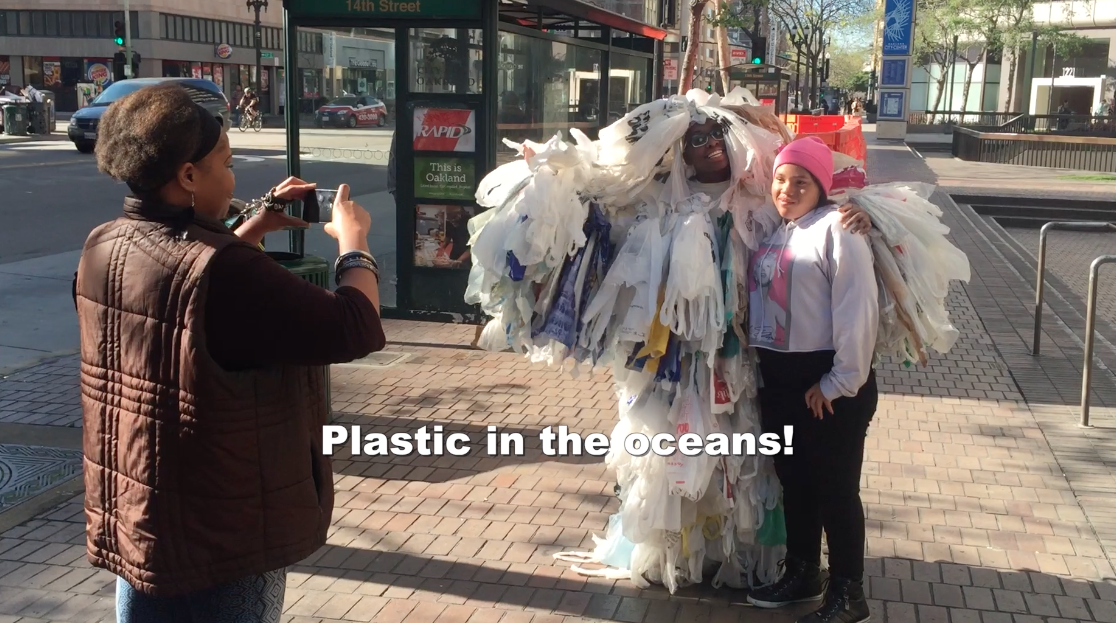
I've been snorkeling all my life, and a few years ago I realized a life-long dream and became certified SCUBA diver. I don't recall ever seeing plastic in the ocean as a kid, and only recall an occasional bag or errant piece of fishing gear in the water when I was a young adult. Then a few years ago, in Hawaii, I bore witness to a very noticeable flotilla of plastics on the water's surface and some in the water column, meanwhile the beaches on the north shore of Oahu were knee deep in plastics and other trash.
It's getting worse. I just returned from another diving trip elsewhere and I have to say it was the first time I spent more time noticing the plastic than the marine life. It's truly horrific how much plastic is out there. Research shows that plastics now pervade the world's oceans.
This year, Clean Water is hosting beach cleanups in the Bay Area - mostly to draw attention to the scale of plastics ending up on our beaches both from land-based discharges and ocean dumping of plastics. What we clean up on beaches comes from the trash (mostly food and beverage packaging and cigarette butts) that flows off city streets and into storm drains and out to coastal waters and then washes back up on the beach. It's also plastics from illegal dumping of plastic trash at sea, and from abandoned fishing gear.
But perhaps even more concerning are recent studies that demonstrate that sewage effluent contains huge quantities of micro-plastics—tiny pieces of plastic film, clothing fibers, polystyrene foam, and other plastic fragments being discharged which are not removed by current sewage treatment technologies.
Plastic in the oceans is a growing problem for all of us, and a new report by the World Economic Forum says there will be more plastic than fish in the world’s oceans by 2050, unless we do something about it, fast.
A major source of plastic flowing from urban areas to the ocean is single-use plastic bags, so I’m proud that California has taken the lead on the plastic bag issue, with our politicians signing the country’s first state-wide single-use plastic bag ban into law in 2014. At Clean Water Action, we spent six years trying to pass a state-wide bag ban in California. We also worked hard at the local level- together with our allies- we ushered in nearly 150 local single use bag bans. The patchwork of local bans helped drive the victory on the state ban.
So, it's particularly disturbing that out-of-state big plastic manufacturers are messing with our success. They have spent $3million to get the measure on the ballot with a referendum this November. That means, even though California has spoken, that big plastic and its big money could buy out our democracy from underneath us.
Fortunately, we have strength in numbers. Will you stand up to big plastic on behalf of California’s wildlife, and take our pledge to vote yes on the bag ban (SB-270) this November, and to talk about it with your friends?
California wildlife photographer Terry McCormac witnessed the struggle of a sea otter, whose pup got trapped in a plastic bag. Fortunately the pup survived, but Terry wants to stand up for wildlife, so he’s backing the plastic bag ban this November:
When it comes to big plastic and its out-of-state cash, sea otters can’t stand up for themselves. So: Take our pledge to vote yes on the bag ban (SB-270) this November?
Nationally, the American Legislative Exchange Council (ALEC), a climate-change-denying lobby group with links to big plastic, seems to be scared of the success we’ve been having in California.
ALEC’s lobbyists have been pushing states to adopt prohibitions on local bag bans, like the more than 150 local bans we adopted in California to pave the way for the state-wide plastic bag ban.
Last month, for example, the state of Wisconsin passed measure pre-empting local bans on plastic bags, and there are now six states looking to do something similar, due to the efforts of these lobbyists.
It’s not surprising that the folks who make profits from selling plastic bags don’t want us to win in California, because we’ll prove to the rest of the country that plastic bags don’t make sense, just as we’ve proved in California that plastic bag bans reduce plastic bag litter in the water system. Local jurisdictions in California are seeing a reduction of plastic bags pollution on beaches and in creeks. For example, there's been a 71% reduction of plastic bag litter at creek hot spots in San Jose and 86% reduction in Alameda County storm drains.
Let’s show them we’re not scared. Take our pledge to vote yes on the bag ban (SB-270) this November.
And if you’d like more facts on why plastic bag bans make sense,


